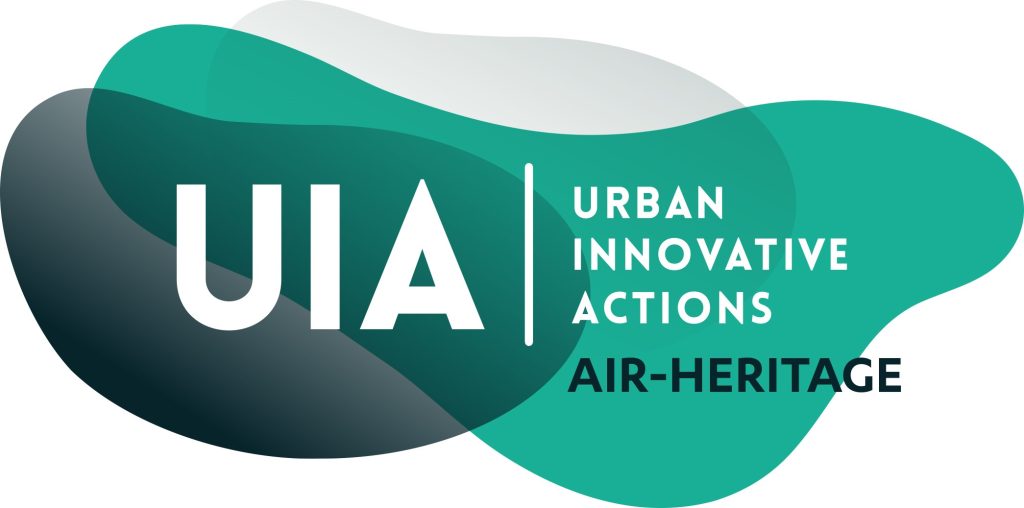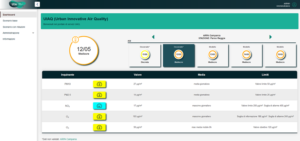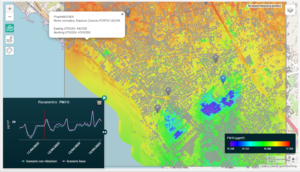To improve air quality at the urban scale
The municipality of Portici (NA), with one of the highest population densities in Italy, 73% of the urbanised area, more than 4’300 houses per km2, and a strong prevalence of the residential function over productive activities, is particularly exposed to air pollution and wants to respond to the challenge of using an integrated key to improve the quality of life and protect the valuable natural and architectural components of its territory.
| Project: UIA03-322, Urban Innovative Actions Budget: 4’093’095 Euros (Managed Activities: 499’809 Euros) Duration: 2018 – 2021 Number and Partners involved: 6 project partners, all italians: Municipality of Portici – project leader (Main Urban Authority), National Agency for New Technologies, Energy and Sustainable Economic Development (ENEA), University of Naples Federico II – Department of Agricultural Sciences (Higher Education and Research Institute), Legambiente Campania Onlus (NGO), ARPAC – Campania Regional Agency for Environmental Protection (regional body) and TerrAria Srl (SME) Role: Partner Project website: uiaairheritage-portici.it |
 |
AIR-HERITAGE is pursuing a 20% reduction in fine particles (PM10) and ultra-fine particles (PM2.5) of NO2, CO and O3, together with an increase of 1’000 E-bike sharing users, the spread of the pedibus in 75% of primary schools, a 20% increase in children walking to school. Although the main sources of air pollution are known and the first is vehicle traffic, in order to effectively tackle the problem, it was deemed necessary to: improve knowledge of pollution in qualitative and quantitative terms at appropriate levels of spatial and temporal detail; have tools capable of supporting local authorities’ decisions; and use widespread community sharing and participation.
AIR-HERITAGE foresees the development of an innovative, pervasive and versatile way of monitoring air quality that is integrated with ordinary institutional monitoring. By modelling the collected data against the context and preparing a decision support tool that can be used by both public administrators and citizens, they will be able to adopt the most appropriate choices and behaviour. Citizens themselves will be able to compete directly in monitoring using hand-held detectors. Local communities, in a complementary and synergetic way, will be sensitised to adopt virtuous behaviour. AIR-HERITAGE aims to achieve a change in the way people assess and react to air quality problems in the city of Portici, reducing distances and barriers between them. In particular, the success of AIR-HERITAGE will have an impact on citizens’ mobility choices and political commitment, as well as on urban policy decision-making.
THE ROLE OF TERRARIA
TerrAria was responsible for the development of a decision support system for decision makers and an App for effective citizen involvement. The DSS is a web application that integrates the results of the other technical work packages – it makes Pervasive Air Quality Monitoring data available, using air quality models and different policies. To ensure the innovative nature of the proposal, TerrAria also integrated Copernicus products (such as background concentrations in real-time forecasts) into the DSS. TerrAria also participated in the Steering Committee.


